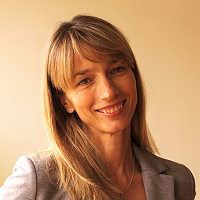Course title:
Structuralism
Course code: PSL135
Course status: Obligatory
Course leader: Ida Raffaelli
Course instructor: Ida Raffaelli
Language of instruction: English
Total hours: 4L + 4S
Form of instruction: Lecture
ECTS credits: 4
Course content by topics:
This course introduces students to the fundamental aspects of structuralism as a period initiating the so-called contemporary linguistics. Consequently, structuralism is contrasted with and evaluated in relation to the period preceding it, in particular the Neogrammarian linguistics. A major feature of structuralism is a variety of schools and approaches, especially in the European context. Students are first introduced to the central theoretical claims of Saussure’s theory of language (language as a system, the relation between language and speech, the understanding of the linguistic sign, the relation between diachrony and synchrony, etc.), which gave rise to a variety of elaborations and interpretations through a number of schools of thought. In this context special interest will be awarded to Hjelmslev’s glossematics, the Prague school with particular emphasis on Jakobson’s binarism, theory of communication and function and Martinet’s language functionalism.
Learning outcomes at course level:
1)To list and explain the main features of structuralism as a period in linguistics; 2)To explain and critically evaluate structuralism compared to other periods in linguistics (the Neogrammarian linguistics) that preceded it; 3) To compare and discuss the similarities and differences of central theoretical claims of Saussure’s theory of language in contrast to the schools and approaches that followed (glossematics, the Prague school, Martinet’s language functionalism); 4) To compare and discuss the fundamental features of structuralist schools and approaches (glossematics, the Prague school, Martinet’s language functionalism)
Learning outcomes at programme level:
| IU1 | IU2 | IU3 | IU4 | IU5 | IU6 | IU7 | IU8 |
| x | x | x | x |
Reading list:
1) Glovacki, Z. (ur.) (2001). Uvod u lingvistiku. Zagreb (A. Kovačec: Ferdinand de Saussure i strukturalizam).; 2) de Saussure, F. (2000): Tečaj opće lingvistike. Zagreb (prijevod V. Vinja).; 3) Luelsdorff, P. A. (ed.) (1994). The Prague School of Structural and Functional Lingusitics. A short introduction. Amsterdam/Philadelphia: john Benjamins (selected chapters); 4) Martinet, A.
(1982). Osnove opće lingvistike. Zagreb (prijevod A. Kovačec).; 5)Hjelmslev, L. (1980).
Prolegomena teoriji jezika. Zagreb: Grafički zavod Hrvatske (prijevod Ante Stamać).; 6)Jakobson,
- / Fant, C. / Halle, M (1952): Preliminaries to Speech Analysis. The Distinctive Features and their Correlates. Cambridge, Mass.; 7) Waugh R. L i Monville-Burston, M. (ed.) (1990). On language – Roman Jakobson. Cambridge Massachusetts, London: Harvard University Press (selected chapters)
Assessment of student achievement: course attendance, oral exam Quality assurance mechanism: student survey

